 September 19, 2009 - The U.S. Food & Drug Administration (FDA) has issued a letter regarding sales of flavored cigarettes becoming illegal on Tuesday, September 22, 2009, providing the industry with more specific direction. Effective September 22, 2009, cigarettes that contain certain characterizing flavors are considered adulterated under the Federal Food, Drug, and Cosmetic Act (FFDCA or the Act), as amended by the Family Smoking Prevention and Tobacco Control Act (FSPTCA).
September 19, 2009 - The U.S. Food & Drug Administration (FDA) has issued a letter regarding sales of flavored cigarettes becoming illegal on Tuesday, September 22, 2009, providing the industry with more specific direction. Effective September 22, 2009, cigarettes that contain certain characterizing flavors are considered adulterated under the Federal Food, Drug, and Cosmetic Act (FFDCA or the Act), as amended by the Family Smoking Prevention and Tobacco Control Act (FSPTCA).
The removal from the market of cigarettes that contain certain characterizing flavors is an important step in FDA’s efforts to reduce the burden of illness and death caused by tobacco products. But the new regulations apply only to ‘characterizing’ flavors; so while clove cigarettes will be banned, those that use, say, chocolate in a non-characterizing way presumably will be permitted.
Menthol is not included in the ban; so while mint will be banned, menthol will be permitted. In fact, mint will presumably become menthol.
The FSPTCA provides FDA with regulatory authority over the manufacture, marketing, and distribution of tobacco products. Specifically, section 907(a)(1)(A) of the Act, as amended by the FSPTCA, establishes a tobacco product standard special rule for cigarettes that states in part: ‘…a cigarette or any of its component parts (including the tobacco, filter, or paper) shall not contain, as a constituent (including a smoke constituent) or additive, an artificial or natural flavor (other than tobacco or menthol) or an herb or spice, including strawberry, grape, orange, clove, cinnamon, pineapple, vanilla, coconut, licorice, cocoa, chocolate, cherry, or coffee, that is a characterizing flavor of the tobacco product or tobacco smoke.’
Maine - law banning flavored tobacco products - July 1, 2009..
‘An Act Concerning Certain Flavored Cigarettes and Flavored Cigars and Hard Snuff’ "Characterizing flavor" was defined as a distinguishable taste or aroma that is imparted to tobacco or tobacco smoke either prior to or during consumption, other than a taste or aroma from tobacco, menthol, clove, coffee, nuts or peppers.
Reference: Menthol in, mint out – what’s in a name?, Tobacco Reporter, 9/17/2009.
Related news brief: U.S. - Importer tries to get around clove cigarettes ban..
Read more...
Bringing the World of Tobacco Control closer together..
U.S. - flavored cigarettes ban looms, how do you define 'characterizing flavor'..
North Carolina - smoking ban simple details, January 2, 2010..
 September 18, 2009 - The proposed rules for implementing the state's historic ban on smoking in restaurants and bars are pretty simple, and there are only two.
September 18, 2009 - The proposed rules for implementing the state's historic ban on smoking in restaurants and bars are pretty simple, and there are only two.
Staffers for the N.C. Commission for Public Health, which must ultimately approve the rules, held a hearing Thursday for public comments and questions on the rules. Only a couple procedural questions arose among the small crowd.
The first proposed rule is that cigar bars, which are exempt, must file an affadavit every quarter verifying that they meet the requirements for operating as a cigar bar. (The requirements in the law include: 60 percent of gross revenue comes from alcohol, 25 percent from cigar sales and a humidor is on the premises.)
The second proposed rule says restaurants and bars must post no smoking signs at each entrance, at a height and location easily seen. The signs (proposed template above) must be at least 24 square inches, such as a 4-inch by 6-inch sign, be legible and include three pieces of information: the Division of Public Health's toll-free complaint line, the statute number for the law and the Web site www.smokefree.nc.gov.
The law takes effect January 2, 2010..
Reference: Smoking ban simple on details, submitted by Mark Johnson on 9/18/2009.
Related North Carolina smoking ban news briefs:
North Carolina - smoking ban does not allow hookah bars to operate - RIGHT..;
North Carolina smoking ban includes banning hookah bars..;
North Carolina Governor Purdue signs smoking ban law..;
North Carolina - legislators approve smoking ban..;
North Carolina - smoking ban scaled back again..;
North Carolina Senate Health Committee votes for stricter smoking ban..;
North Carolina House poised to pass smoking ban..;
North Carolina - ban on smoking in public places passes 1st test...
Read more...
Smoking mothers and low birth weight increase risk of child developing asthma..

 September 18, 2009 According to a Swedish study presented at the 19th Annual Congress of the European Respiratory Society (ERS), being exposed to smoking during fetal development and having a low birth weight increases the risk of developing asthma in childhood by four to six times. Moreover, these two parameters contribute synergistically to asthma in childhood, said the author: Anders Bjerg.
September 18, 2009 According to a Swedish study presented at the 19th Annual Congress of the European Respiratory Society (ERS), being exposed to smoking during fetal development and having a low birth weight increases the risk of developing asthma in childhood by four to six times. Moreover, these two parameters contribute synergistically to asthma in childhood, said the author: Anders Bjerg.
Babies born to mothers who smoked during pregnancy are up to six times more likely to develop asthma, according to a Swedish study published at the European Respiratory Society's annual congress on Monday, September 14th.
The study, presented Monday at the European Respiratory Society's annual congress, showed that smoking leads to babies being born underweight, a fact that has an impact on the development of asthma.
Professeur Anders Bjerg of the Sunderby central hospital in Norrbotten and his specialists studied asthma in about 3,400 children between 1996 and 2008.
The study found that babies of smoking mothers had an average weight of 211 grammes less than those of mothers who do not smoke.
Nearly a quarter (24.3 percent) of smoking mothers' babies weighed less than 2.5 kilogrammes at birth against 4.1 percent for those of non-smoking women.
In underweight children of women who smoked throughout their pregnancy the asthma risk was at 23.5 percent, against 7.7 percent in children of non-smoking mothers who were born with an average weight.
Press Release page 1..
Press Release page 2..
Ten reasons for pregnant women to quit smoking.
It is worth noting, pregnant women exposed to passive smoke greater chance of child will have respiratory distress...
Reference: Smoking during pregnancy raises babies' asthma risk: study, Agence France-Presse (AFP) / Local , 9/15/2009.
Some pregnancy related news briefs: Pregnant women who quit smoking before the 15th week reduce risk of premature birth and small babies..; Pregnant women exposed to passive smoke greater chance of child will have respiratory distress..; Cigarette Smoking During Pregnancy Alters Maternal and Fetal Thyroid Function..;
Read more...
Western Australia - added sweetners make cigarettes easier to tolerate..
 September 18, 2009 - Liquorice (Licorice), sugars and even cocoa are being added to cigarettes to help smokers inhale a "lethal cocktail", tobacco control experts say.
September 18, 2009 - Liquorice (Licorice), sugars and even cocoa are being added to cigarettes to help smokers inhale a "lethal cocktail", tobacco control experts say.
Bill King, from the  , who has conducted extensive research into the make-up of cigarettes, said tobacco manufacturers added substances including sugars, cocoa and liquorice that made cigarettes more attractive and addictive.
, who has conducted extensive research into the make-up of cigarettes, said tobacco manufacturers added substances including sugars, cocoa and liquorice that made cigarettes more attractive and addictive.
Mr King: "These additives make cigarettes more attractive to smokers, and that's what's wrong with them. They lull smokers into a false sense of security. They're tricked into believing that a less harsh taste makes the cigarette less harmful for them. These additives ultimately help smokers swallow a lethal cocktail."
Mr King helped the Cancer Council WA (Western Australia, W.A.) launch a new television advertisement today which shows a number of different smoking-related health conditions and is set to the well-known song "Sugar Sugar" by The Archies.
Make Smoking History campaign manager Susan Stewart said smokers needed to know that while the true flavour of tobacco could be masked with additives, the damage caused by smoking could not be hidden. "In fact, many smokers are fascinated, unaware or shocked to discover cigarettes are made up of such ingredients," said Ms Stewart.
Almost 300,000 WA adults still smoke and around 1200 Western Australians lose their lives to smoking every year. The new ad campaign aims to get smokers to quit before it's too late.
Smokers can call the Quitline on 13 78 48 to talk to someone confidentially about quitting or enquire about the Cancer Council's Fresh Start quit smoking course. Smokers can also talk to their local GP or pharmacist.
Make Smoking History is an initiative of the 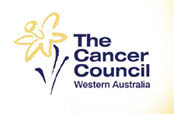 and is proudly
and is proudly
supported by the  and
and  .
.
Reference: Additives make smoking sweeter, but just as deadly, KATE TARALA, The West Australian, 9/14/2009.
Western Australia related brief: Western Australia - major tobacco companies were worried about tobacco controls...
Click on Department of Health logo to learn more about tobacco control activities..
Click on Healthway logo to learn more about the program..
Read more...
Indonesia - Constitutional Court by close vote rules that tobacco ads can continue..
Cigarette Advertising:
 September 18, 2009 - A split Constitutional Court [similar to the U.S. Supreme Court] on Thursday, September 10th quashed [to set aside, especially by judicial action] a petition to ban cigarette advertising on television, rejecting appeals that ads could encourage children to start smoking. (The image to the right is the Constitution Court (Mahkamah Konstitusi) Building, click to enlarge.)
September 18, 2009 - A split Constitutional Court [similar to the U.S. Supreme Court] on Thursday, September 10th quashed [to set aside, especially by judicial action] a petition to ban cigarette advertising on television, rejecting appeals that ads could encourage children to start smoking. (The image to the right is the Constitution Court (Mahkamah Konstitusi) Building, click to enlarge.)
In a five-four decision, the court said the petition filed by two child protection groups and two children was legally baseless.
“Cigarettes are a legal commodity,” Chief Justice Mahfud MD said, reading the court’s ruling. “For that reason, cigarette promotion should also be seen as a legal action.”
The National Commission for Child Protection (Komnas Anak) and the West Java-based Children’s Protection Council had demanded that the court void an article in the 2002 Broadcasting Law that states that commercial ads may be aired by electronic media as long as they didn’t show cigarettes or people smoking.
Judges Maruarar Siahaan, Muhammad Alim, Harjono and Achmad Sodiki voted to annul the article, which would have meant all televised cigarette ads would be banned.
Maruarar said the country’s cigarette industry had been known to harm the right of children to a healthy life. Alim said that cigarettes could cause health problems and shorten life expectancy, while Harjono said the state had an obligation to promote the rights of children.
According to the University of Indonesia’s Demographics Institute, in 2008 some 68 million Indonesians were active smokers and 427,948 people died nationwide (population: 237,512,352 (July 2008 est.))from smoking-related illnesses, accounting for 22.5 percent of deaths in the country last year.
“Despite the court having to face both the economic rights of cigarette producers and constitutional morality, the plaintiffs’ demands should be approved,” Judge Harjono said.
However, the other five judges ruled that advertising was a constitutional right for everyone, including the cigarette industry.
Judge Arsyad Sanusi said the Constitutional Court would be acting unfairly if it only focused on the negative impacts of cigarettes, while ignoring the views of cigarette producers, tobacco farmers, the advertising industry and other businesses related to cigarette production.
“In 2008, 400,000 people worked directly in the cigarette industry,” he said. “Meanwhile, there are 2.4 million tobacco farmers, 1.5 million clove farmers, 4.8 million [cigarette] sellers and 1 million workers in related industries such as printing and transportation.”
Government revenue from cigarette taxes was Rp 57 trillion ($5.75 billion) in 2008, while the tobacco industry spent Rp 1.4 trillion on advertising.
Judge Abdul Mukthie Fadjar said banning cigarette ads would be ineffective as well as unconstitutional.
Muhammad Joni, a lawyer for the plaintiffs, said although he respected the court’s decision, he would mount another challenge to the Broadcasting Law. “We will file another judicial review on other articles with the same aim — to ban cigarette ads,” he said. He said judges should compare cigarettes and alcoholic beverages. Neither of them are seen as illegal. However, ads for alcoholic drinks are banned, while cigarette ads are allowed. There is a strong connection between cigarette ads and the widespread use of cigarettes.”
Reference: Cigarette Ads Upheld by Indonesia's Constitutional Court, Camelia Pasandaran, Jakarta Globe, 9/11/2009.
Indonesia related news briefs:
Indonesia - parent smoking can negatively affect the nutrition of children..;
Indonesia - new council member suspect in cigarette fraud case..;
Indonesia - an NGO commission assists cigarettes must be banned in films..
Indonesia - a paradise for tobacco companies..
Indonesia - after buying cigarettes very little left for food..;
Indonesia - will they ratify the first world public health treaty..;
Indonesia - last paradise to smoke in public places in Southeast Asia..;
Indonesia - Industry minister to close tobacco to new foreign investment..;
Indonesia Finance Ministry to cap tax deductions for tobacco companies..;
Indonesia - Smoking hits poor families the hardest, making the poor even poorer..;
Indonesia - Cigarette makers defy crisis, grows stronger..;
Indonesia - government may raise cigarette excise tax next year..;
WHO - Indonesia is crying out for your help..;
Indonesia - dispute with U.S. over banning the use of clove in cigarettes..;
Indonesia 'cash cow' for Philip Morris International..;
Tobacco industry has long targeted young people as "replacement smokers";
Indonesia - district court dismisses request to ratify FCTC..;
Asean Countries - Tobacco Industry Blocking Global Treaty On Tobacco..; Indonesia - farmers hold rally protest tobacco controls..;
Indonesia - tobacco farmers reject Islamic council's edict..;
Indonesia - Ulema Council - debate results is split on smoking..;
Indonesia - Withdraw Sponsorhip of Another Rock Concert..;
Indonesia to increase tax on tobacco products..;
Semarang, Indonesia - Cigarette Smoking Areas to be Prepared..;
Jakarta, Indonesia - Malls help enforce non-smoking ban..;
Indonesia - federal anti-smoking laws in one year - MAYBE..;
Indonesia - NGO's (non-government organizations) Demand the Government Ratify WHO's FCTC.;
Indonesia to raise cigarette tax by 6 to 7% in 2009..;
Surabaya, Indonesia - anti-smoking bylaw 10/2009 - FOR REAL??
Indonesians smoking more than ever before..;
Indonesia further rise in the excise tax would hurt the cigarette industry..;
Alicia Keys - Jakarta Concert (July 31st) tobacco companies forced to withdraw sponsorship.. and
Most Indonesians support moves to ban tobacco advertisements...
Read more...
UK - Richard Branson makes high-profile plea for tobacco control measures to protect children..

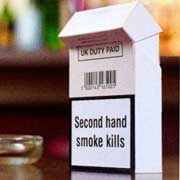 September 17, 2009 - Sir Richard Branson has waded into the debate on plain cigarette packaging and urged Members of Parliament (MPs) to back a bill on new tobacco control measures.
September 17, 2009 - Sir Richard Branson has waded into the debate on plain cigarette packaging and urged Members of Parliament (MPs) to back a bill on new tobacco control measures.
Branson wants more to be done to stop children being sucked into a "lethal addiction", according to a story in today's Daily Mirror, and is backing a campaign to protect children from tobacco marketing.
"Getting rid of cigarette vending machines will help save lives. And plain packaging will help take the glitz and glamour out of tobacco," the founder of the Virgin group of companies is quoted as writing in a letter to newspaper editors.
Branson is supporting a campaign by Cancer Research UK to help protect children from tobacco marketing.
Last week, tobacco manufacturers hit back at research that said bright packaging was misleading some smokers. "Plain packaging would prevent tobacco manufacturers from providing consumers with information about products that are legally available in retail outlets," said Christopher Ogden, chief executive of the Tobacco Manufacturers Association.
Amanda Sandford, research manager at charity Action on Smoking and Health (Ash) said packaging was now the main form of tobacco promotion and said plain packaging would be a first step to stop misleading information.
Analysis: Stark images reignite cigarette pack debate..
We must not forget that Andre Calantzopoulos, CEO, Philip Morris International (PMI), tells us PMI strongly opposes generic packaging. (PMI presentation at JP Morgan Global Tobacco Conference, London, 6/27/2008)
Reference: Richard Branson makes high-profile plea on cigarette packs, Simeon Goldstein, PackagingNews.co.UK, 9/14/2009.
Some related news briefs:
Children - exposed to cigarette smoke in cars have greater chance of respiratory distress..;
England - ban on public smoking results in a fall in heart attack by 10%..;
Updated - England - tabacco display ban - the Lords got it right..;
United Kingdom survey results adults back proposals to protect children from tobacco..;
UK - House of Lords -debate on tobacco plain packaging..
England, House of Lords votes to ban shop tobacco dislays and restrict vending machine use..;
United Kingdom to consider plain tobacco product packaging...
UK - Strategies to be implemented to prevent underage tobacco use..;
ASH calls for a debate in England on banning smoking in all cars with kids present;
British considering banning logos on cigarette packs, other measures...
Read more...
Smoking in cars results in higher nicotine exposure..
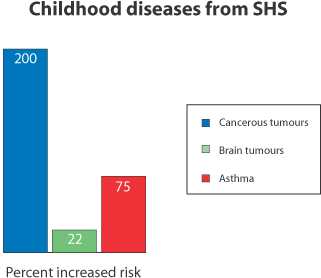 September 17, 2009 - Smoking in vehicles brings higher nicotine exposure by David Ress, Richmond Times-Dispatch, 9/17/2009.
September 17, 2009 - Smoking in vehicles brings higher nicotine exposure by David Ress, Richmond Times-Dispatch, 9/17/2009.
We have already reported on this paper from the journal Tobacco Control (Published Online First: 25 August 2009) Secondhand tobacco smoke concentrations in motor vehicles, Miranda R Jones, Ana Navas-Acien, Jie Yuan, Patrick N Breysse, Johns Hopkins: More evidence - vehicles most dangerous space for second-hand smoke inhalation...
A benchmark 2005 European survey of nicotine, cited by the Hopkins study, in the air of restaurants that allow smoking reported median levels of 9.3 micrograms in Paris; 7.8 in Barcelona; 7.1 in Orebro, Sweden; and 4.7 in Athens. Only Vienna, at 17 micrograms, reported a higher average than the average for a driver smoking four or more cigarettes. Nicotine in the air of smokers' cars was higher than the averages recorded in a 31-nation survey of 1,284 smokers' homes, according to a 2008 report also cited in the Hopkins study.
The eight-cigarette driver's car had more nicotine in the air than 28 of the 40 European discos and bars that the 2005 the European survey examined. Each cigarette smoked roughly doubled the amount of nicotine in the air in the cars, the study found.
Read more...
Scotland - tobacco firms claim proposed display ban is unnecessary.
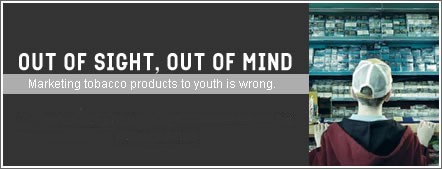
 September 17, 2009 - Cigarette firms today insisted a ban on tobacco displays proposed by the Scottish Government was "unnecessary, unjustified and unwanted". Christopher Ogden, the chief executive of the Tobacco Manufacturers' Association, also claimed the display ban – put forward by the Scottish Government – could be exploited by organised crime.
September 17, 2009 - Cigarette firms today insisted a ban on tobacco displays proposed by the Scottish Government was "unnecessary, unjustified and unwanted". Christopher Ogden, the chief executive of the Tobacco Manufacturers' Association, also claimed the display ban – put forward by the Scottish Government – could be exploited by organised crime.
The tobacco boss hit (spoke) out after the majority of Member of the Scottish Parliament (MSPs) on Holyrood's (the Parliament) Health and Sport Committee gave their backing to the move.
But Mr Ogden said: "The last thing we need in the midst of recession is further regulation that will facilitate illicit trade in tobacco products and impact adversely on thousands of small retailers and the communities they serve."
The Government's Tobacco and Primary Medical Services (Scotland) Bill aims to curb the sale of cigarettes and tobacco to youngsters.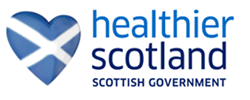
If passed, the legislation would ban stores from displaying cigarettes and other tobacco products, outlaw cigarette vending machines and introduce a registration system for tobacco retailers.
MSPs on the Health and Sport Committee have also urged the Scottish Government to expand the proposals to make it a criminal act for adults to buy tobacco for under-age youngsters.
Committee convener Christine Grahame said: "The majority of our committee believes that cigarettes at the point of sale represent an advertisement and a ban on these displays would have a particularly positive effect in deterring teenagers.
"Most members also believe that cigarette vending machines should be banned."
However Mr Ogden claimed MSPs had failed to consider "compelling evidence" provided by manufacturers retailers and others that the "ban will not have its intended effect". He added: "The proposed ban is unnecessary, unjustified and unwanted by many stakeholders, especially the retailers whose businesses will be adversely affected to no purpose." Mr Ogden continued: "The serious unintended consequences of this proposal have also been ignored by the Scottish Health and Sport Committee.
Ogden: "We believe, as evidence in Ireland proves, with the seizure of significant quantities of counterfeit cigarettes of the top two brands in Ireland, that organised crime will exploit the display ban. The proposed legislation will make illicit, unregulated tobacco products easier to sell. "We hope that common sense will prevail and the Bill will be amended when it is debated in the Scottish Parliament."
 However Public Health Minister Shona Robison said: "Across Scotland, too many families have watched loved ones suffer and die prematurely as a result of smoking-related illnesses. "The cost of smoking is high – both in terms of premature deaths and the £400 million cost to the NHS annually. "That's why we are taking radical steps to ban both tobacco displays in shops and cigarette vending machines. These measures, and others included in the Tobacco and Primary Medical Services (Scotland) Bill, will help to reduce the attractiveness and availability of cigarettes of children, stopping them becoming the smokers of tomorrow."
However Public Health Minister Shona Robison said: "Across Scotland, too many families have watched loved ones suffer and die prematurely as a result of smoking-related illnesses. "The cost of smoking is high – both in terms of premature deaths and the £400 million cost to the NHS annually. "That's why we are taking radical steps to ban both tobacco displays in shops and cigarette vending machines. These measures, and others included in the Tobacco and Primary Medical Services (Scotland) Bill, will help to reduce the attractiveness and availability of cigarettes of children, stopping them becoming the smokers of tomorrow."
She added: "We're committed to cutting the number of smokers in Scotland. Stopping people from starting to smoke in the first place is a priority for us and this legislation will help to do just that." John Drummond, the chief executive of the Scottish Grocers' Federation, said: "We are extremely disappointed the committee has recommended a ban on the display of tobacco despite their own admission that the international evidence to support this measure is inconclusive." He added that the Federation had "repeatedly made the argument that regulations should only be made when they are supported by compelling evidence". And he said: "A display ban will impose a significant burden on retailers at a time when they can least afford it."
John Drummond, the chief executive of the Scottish Grocers' Federation, said: "We are extremely disappointed the committee has recommended a ban on the display of tobacco despite their own admission that the international evidence to support this measure is inconclusive." He added that the Federation had "repeatedly made the argument that regulations should only be made when they are supported by compelling evidence". And he said: "A display ban will impose a significant burden on retailers at a time when they can least afford it."
However Mr Drummond gave his backing to the committee's call for the Government to make it an offence to adults to buy cigarettes for under 18s. Drummond: "The single most likely way for a young person to get hold of cigarettes is through an adult. Currently there is no legal deterrent to adults who supply tobacco for young people."
He added that moves to criminalise this proxy purchasing would be welcome and said: "Proxy purchasing tobacco for young people is immoral and should be illegal."
Some related news briefs - Scotland:
"Glasgow effect" - prevalence of cigarette smoking impact on poor health..;
Scotland - tobacco industry will try to stop attempts to curb sales to young people..;
Scotland - cigarette vending machines removal..;
Scottish politicans most have the courage to protect the health of their constituents..;
Scotland - small businesses given extra 2-years to remove tobacco displays..;
Northern Ireland - assembly approves ban on display of tobacco items..;
Scotland to ban cigarette displays and outlaw cigarette vending machines..;
Bar workers who smoke also benefit from smoking ban..;
17 countries in the world ban indoor smoking - ENFORCEMENT..;
England, Wales to ban tobacco displays in shops..;
Definite Health Benefits of Smoking Bans..;
Northern Ireland raising age for sale of tobacco from 16 to 18 joining the other three United Kingdom (UK) countries..;
Scotland proposes to implement more measures to discourage tobacco use including the banning of tobacco displays..;
Raise Age to 21 to Purchase Tobacco Products...
Read more...
England - retailers still sell cigarettes to underage teens..
 September 17, 2009 - As of October 1, 2007 the legal minimum age at which tobacco can be bought in England, Scotland and Wales went from 16 to 18.
September 17, 2009 - As of October 1, 2007 the legal minimum age at which tobacco can be bought in England, Scotland and Wales went from 16 to 18.
A fifth of corner shops in England flout the law and sell cigarettes to teenagers and young children, trading standards officers have said. Fines for shopkeepers are so low - less than £100 (164.579 USD) - that they do not act as an effective deterrent, they added. Teenage (adolescent) volunteers visited more than 4,000 shops to see if owners would sell them cigarettes without asking for proof of age during a year-long study.
One in seven 15-year-olds is a regular smoker and the research indicates plenty of shops are willing to sell cigarettes to under-18s.
The Local Authorities Coordinators of Regulatory Services (Lacors), the body which oversees the work of trading standards officers across the UK, said the level of fines imposed on offending shopkeepers is not high enough. Lacors chairman Paul Bettison said: "Councils are doing everything in their power to protect young people from the dangers of smoking but retailers are effectively only being slapped on the wrist with minuscule fines. Magistrates have said their guidelines discourage heavier fines.
The Association of Convenience Stores said the findings were inaccurate. This report fails to paint an accurate picture of what is actually happening... [Most shops] are everyday preventing young people from getting hold of tobacco. Shane Brennan
Association of Convenience Stores: "Less than £100 is hardly enough to make a shopkeeper think twice. "It is time for magistrates to hit those retailers that have a blatant disregard of the law and children's health with higher fines."
The Magistrates' Association has said some of its members are unhappy that sentencing guidelines discourage them from imposing heavier fines.
But retailers say the findings of the study are not accurate.
Shane Brennan, from the Association of Convenience Stores, told the BBC: "This report fails to paint an accurate picture of what is actually happening for the responsible majority of shops out there in the country, who are every day preventing young people from getting hold of tobacco".
In the United Kingdom in order to purchase tobacco products the age has been raised to 18 but there's no uniformity in enforcing these purchases.
In Scotland, the Parliament's health committee has recommended a law change to make it illegal for under-18s to buy tobacco. (In Scotland on October 1, 2007 it became illegal to sell tobacco to anyone under 18.) The committee has also backed plans by the government in Edinburgh to ban the display of cigarettes and outlaw tobacco vending machines. Scottish ministers have said they want to cut the proportion of young people who smoke to less than 23% by 2012. (Scotland - tobacco industry will try to stop attempts to curb sales to young people..)
The findings on under-age cigarette sales in England come as the government launched an anti-smoking advertising campaign. It features children describing their fears about their parents' nicotine addiction.
Reference: Shops 'flout cigarette sales law', BBC, 9/14/2009.
Read more...
Children - exposed to cigarette smoke in cars have greater chance of respiratory distress..
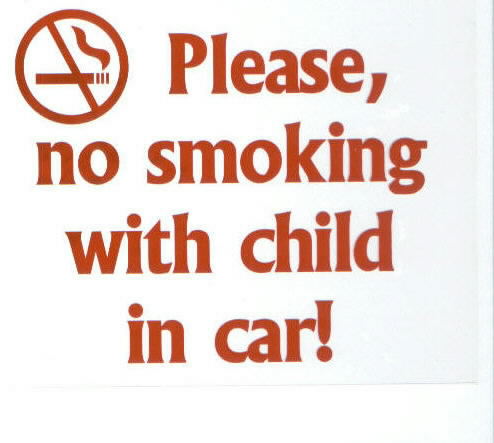
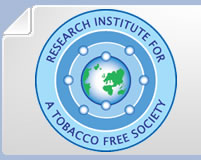 September 17, 2009 - Luke Clancy, from the Tobacco Free Research Institute in Dublin, and team explain: “Children (kids, child, youth, youngster)) may be more vulnerable to second-hand smoke (SHS, passive, sidestream, environmental tobacco smoke, ETS, involuntary smoking) -induced respiratory diseases due to smaller airways and greater oxygen demand, as well as a less-mature immune system.” But they add that “there is no evidence quantifying second-hand smoke-induced respiratory health effects in children exposed to second-hand smoke in cars.”
September 17, 2009 - Luke Clancy, from the Tobacco Free Research Institute in Dublin, and team explain: “Children (kids, child, youth, youngster)) may be more vulnerable to second-hand smoke (SHS, passive, sidestream, environmental tobacco smoke, ETS, involuntary smoking) -induced respiratory diseases due to smaller airways and greater oxygen demand, as well as a less-mature immune system.” But they add that “there is no evidence quantifying second-hand smoke-induced respiratory health effects in children exposed to second-hand smoke in cars.”
To address this, the team studied 2809 children, aged 13–14 years, selected randomly from schools throughout Ireland. All the children completed questionnaires detailing their exposure to second-hand smoke at home and in cars, and whether they themselves smoked. They were also asked whether they had ever suffered from asthma, hayfever, wheezing, or other respiratory health problems.
PAPER: Second-hand smoke exposure in cars and respiratory health effects in children
Z. Kabir, P. J. Manning, J. Holohan, S. Keogan, P. G. Goodman and L. Clancy, Eur Respir J 2009; 34:629-633, ABSTRACT...
It was found that, overall, 14.8% of the children surveyed were regularly exposed to tobacco smoke when traveling by car. After accounting for tobacco smoke exposure at home and other factors, the researchers found that children exposed to second-hand tobacco smoke in cars were 35% more likely to suffer from wheezing and 30% more likely to have hayfever symptoms than those who were not exposed to second-hand smoke when traveling by car.
Research team comment: “Despite this study showing a tendency towards an increased likelihood of respiratory and allergic symptoms in children when exposed to second-hand smoke in cars, comprehensive longitudinal studies across different population settings are imperative.” However, the researchers add: “Assuming a causal relation, such adverse respiratory symptoms could have a knock-on effect on school absenteeism, and also on being at greater risk for future second-hand smoke related morbidity and mortality.”
Reference: Passive smoking in cars linked to hayfever and wheezing in children by Mark Cowen, MedWire News, 9/15/2009.
Some related news briefs - kids - parent smoking in cars:
More evidence - vehicles most dangerous space for second-hand smoke inhalation..;
New South Wales politician smoking comment totally inaccurate..;
World Asthma Awareness Day..;
Further evidence - STOP smoking in the presence of your children..;
Ireland - ban smoking in cars when kids are present..;
Ontario law banning smoking in cars with children takes effect ..;
Maine - illegal to smoke in cars while children present..;
Ban on smoking in cars when children are present..;
Read more...
Indonesia - parent smoking can negatively affect the nutrition of children..
 September 16, 2008 - After years of media attention, many people accept that smoking is bad for health and that those who are exposed to someone else's "second-hand" smoke are at increased risk for a wide range of health problems.
September 16, 2008 - After years of media attention, many people accept that smoking is bad for health and that those who are exposed to someone else's "second-hand" smoke are at increased risk for a wide range of health problems.
Now new research shows that in many developing countries, smoking can negatively affect the nutrition of children who live with a smoker. That's because in poor nations, smokers may spend a significant amount of household income to pay for cigarettes.
Economist Steven Block examined data from Indonesia about the spending habits of smokers. More than 60 percent of men in Indonesia smoke. Block found that among very poor families in rural central Java, "when there is a smoker in the household, they spent approximately 10 percent of their household budget on tobacco products."
(For example: Indonesia - Smoking hits poor families the hardest, making the poor even poorer..)
The statistics even applied to the poorest families where food budgets take up between 60 to 70 percent of total income. "For them to start allocating 10 percent of their household budget to cigarettes implies some pretty severe trades off, in terms of other things like food, perhaps housing, healthcare [and] education," Block said.
The data, collected by Helen Keller International, a not-for-profit group that tracks household consumption patterns, also showed that having a smoker in the family impacts the physical development of children, Block added.
"Because these tobacco expenditures are displacing food expenditures, we can document that the children are slightly shorter on average in those households," Block said.
However, he added that studies show that the stunting effects of diverting food funds for tobacco could be mitigated by mothers who were better educated to make wiser, more nutritional food purchases.
Reference: Tobacco Use Worsens Malnutrition in Developing Countries by Rose Hoban, Durham, North Carolina, VOAnews.com, 9/15/2009.
Indonesia related news briefs:
Indonesia - new council member suspect in cigarette fraud case..;
Indonesia - an NGO commission assists cigarettes must be banned in films..
Indonesia - a paradise for tobacco companies..
Indonesia - after buying cigarettes very little left for food..;
Indonesia - will they ratify the first world public health treaty..;
Indonesia - last paradise to smoke in public places in Southeast Asia..;
Indonesia - Industry minister to close tobacco to new foreign investment..;
Indonesia Finance Ministry to cap tax deductions for tobacco companies..;
Indonesia - Smoking hits poor families the hardest, making the poor even poorer..;
Indonesia - Cigarette makers defy crisis, grows stronger..;
Indonesia - government may raise cigarette excise tax next year..;
WHO - Indonesia is crying out for your help..;
Indonesia - dispute with U.S. over banning the use of clove in cigarettes..;
Indonesia 'cash cow' for Philip Morris International..;
Tobacco industry has long targeted young people as "replacement smokers";
Indonesia - district court dismisses request to ratify FCTC..;
Asean Countries - Tobacco Industry Blocking Global Treaty On Tobacco..; Indonesia - farmers hold rally protest tobacco controls..;
Indonesia - tobacco farmers reject Islamic council's edict..;
Indonesia - Ulema Council - debate results is split on smoking..;
Indonesia - Withdraw Sponsorhip of Another Rock Concert..;
Indonesia to increase tax on tobacco products..;
Semarang, Indonesia - Cigarette Smoking Areas to be Prepared..;
Jakarta, Indonesia - Malls help enforce non-smoking ban..;
Indonesia - federal anti-smoking laws in one year - MAYBE..;
Indonesia - NGO's (non-government organizations) Demand the Government Ratify WHO's FCTC.;
Indonesia to raise cigarette tax by 6 to 7% in 2009..;
Surabaya, Indonesia - anti-smoking bylaw 10/2009 - FOR REAL??
Indonesians smoking more than ever before..;
Indonesia further rise in the excise tax would hurt the cigarette industry..;
Alicia Keys - Jakarta Concert (July 31st) tobacco companies forced to withdraw sponsorship.. and
Most Indonesians support moves to ban tobacco advertisements...
Read more...
Pennsylvania - Republican legislators still refuse to tax tobacco products other than cigarettes..
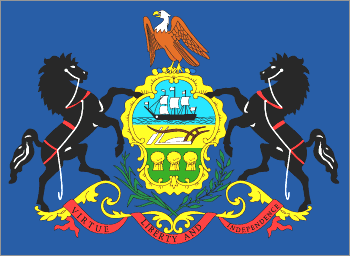 September 16, 2009 - When it came to raising new sources of desperately needed revenue, stogies and chaw appeared to be the lowest-hanging fruit. [OTP - other tobacco products..]
September 16, 2009 - When it came to raising new sources of desperately needed revenue, stogies and chaw appeared to be the lowest-hanging fruit. [OTP - other tobacco products..]
Every other state imposes excise taxes on smokeless tobacco, and all but one other - Florida - do so on cigars. And the idea was widely popular in the Keystone State, public-opinion polls showed. So how did the ripe-for-the-picking products avoid being affected by the cornucopia of taxes that top lawmakers announced last week would balance the state budget?
Johnna Pro, press secretary for the House Majority Appropriations Committee, has a theory. "Because the majority of people negotiating the budget are cigar-chomping men," she said. "It's sexism."
That tongue-in-cheek reasoning aside, Pennsylvania lawmakers have clearly rebuffed an idea that most agree could have generated $38 million in new tax revenue this year.
Last week, leaders of three of the four caucuses announced that they had reached a budget agreement on a $27.9 billion spending plan. They said the package provided $1.2 billion in new revenue that the state could count on for years to come, including a 25-cent-per-pack hike in the cigarette tax. But still no tax on smokeless tobacco or cigars - a proposal that seven out of 10 Pennsylvanians support, polls have shown.
Antitobacco groups said they were stunned that the products were not included in the plan as they had been led to believe by top legislators. "It makes zero sense," said Kevin O'Flaherty, the Northeast advocacy director for the Campaign for Tobacco Free Kids. "It's fine to raise the price of cigarettes. . . . But it increases the disparity in price between cigarettes and other tobacco products, and that encourages kids to use those products."
Already, he said, the rate of 16- to 25-year-olds in Pennsylvania using those products is twice the national average.
Senate Democrats supported taxes on cigars and smokeless tobacco, and Brett Marcy, a spokesman for House Democrats, said that caucus had supported the proposal but was unsuccessful getting Senate Republicans to sign off.
Brett Marcy: "We agree that it is a commonsense tax and a ready source of revenue," he said. "But the political realities being what they are dictated that it may not be possible this budget year. "There was just not an appetite in the Senate Republican caucus to look at those options."
Erik Arneson, spokesman for Senate Majority Leader Dominic Pileggi (R., Delaware), said leaders dropped the cigar and smokeless-tobacco tax because of its minimal effect on closing the budget deficit. "The amount which would be raised . . . is so relatively small that it is immaterial to producing a balanced budget," Arneson said.
Yet the parties did reach compromises on other, even smaller, budget items. For instance, they agreed to take $25 million annually from the profits of the state-run liquor-store system and use it for general government functions.
Gov. Rendell has vowed to veto the three-caucus compromise budget, arguing that it is built on "phony" and overly optimistic revenue figures that, when they don't materialize, will put the state in this very position next year. He also said the spending plan shortchanged education.
Legislative leaders from the three caucuses spent much of yesterday in closed-door talks with administration aides in hopes of ending the budget standoff. Senate Republican leaders said late yesterday that a final budget agreement could be hashed out today, setting the stage for approval by the bipartisan conference committee as early as tomorrow. The state, which began its fiscal year July 1, has been operating under a stopgap spending plan.
Rendell repeatedly has said that taxing snuff, chewing tobacco, and cigars was a no-brainer, and he has expressed frustration that the General Assembly hasn't agreed with him.
"It is a special interest that continues to be treated as special," said Gary Tuma, Rendell's press secretary. "The administration favors taxing these products as other states do. Not doing so defies logic."
The tobacco taxes also weren't in the revenue mix in another compromise plan offered by Rep. Sam Smith (R., Jefferson), the leader of House Republicans, who were not party to the three-caucus budget agreement. "When you listen to the governor and the Democratic leaders, they are literally saying 'tax it because it is not taxed,' " said Steve Masking, Smith's spokesman. "We don't believe that something should be taxed just for the sake of taxing."
Sharon Ward, director of the Harrisburg-based Pennsylvania Budget and Policy Center, said she believed Republicans were sticking to their "no-new-tax pledge" and "listening to their inner Rush Limbaughs" when they decided to forgo the smokeless-tobacco and cigar taxes. "It's discouraging that they would bypass a revenue idea that has virtually no impact on Pennsylvanians and minimal impact on industry," she said.
Reference: A Pennsylvania tax idea goes up in smoke by Mario F. Cattabiani and Amy Worden, Inquirer Harrisburg Bureau, Philadelphia Business Today, 9/16/2009.
Related news briefs:
Pennsylvania - September 11th, one year after smoking ban took effect..;
More evidence - Casino workers face greater chance of disease..;
Pennsylvania may begin to tax OTPs - do it by Weight..;
Pennsylvania - Judge rules Camel Ads Violated Ban On Cartoons..;
Pennsylvania Smoking Ban - Lots of Exceptions..;
Pennsylvania - Cigarette Vending Machines NO Longer Wanted..;
Finally Pennsylvania's Smoking Ban Takes Effect Today..;
Ed Rendell, governor of Pennsylvania wants to pay for providing health insurance;
Pennsylvania Governor Ed Rendell is proposing an excise tax on tobacco...
Click on image to enlarge the Pennsylvania state flag..
Read more...
Saudi Arabia - rid country of public smoking zones..
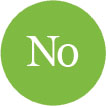
 September 16, 2009 - Most of the teens who smoke don’t show the habit while in educational institutions or at home; a majority of them smoke in public places where there are no restrictions. The setting up of smoking zones in public places has also sort of legalized smoking, a situation teenage smokers have taken advantage of, according to 19-year-old Tanweer Chowdhury from Bangladesh.
September 16, 2009 - Most of the teens who smoke don’t show the habit while in educational institutions or at home; a majority of them smoke in public places where there are no restrictions. The setting up of smoking zones in public places has also sort of legalized smoking, a situation teenage smokers have taken advantage of, according to 19-year-old Tanweer Chowdhury from Bangladesh.
Smoking places are now located in shopping complexes, restaurants, hospitals and other public places. “Smoking has been legalized ever since, and it is quite impossible to make people give up smoking because of the presence of these zones,” he said.
Parents who are unable to convince their school going boys to quit smoking suggest that like alcohol and narcotics, cigarettes should also be banned in Saudi Arabia. “It is a drastic suggestion, but we parents are facing difficulty in persuading our children to stop smoking. “We even cut their allowances, to no avail,” a worried father said.
“Public smoking, these days, is considered a fashionable thing because of the new generation’s perception that smoking is a cool thing to do, even in public,” said 18-year-old Daniyal Ashraf from Pakistan. “Though we know it is harmful to smoke, and that smoking not only affects the smokers, but the people around them, many continue with the habit. Besides, there are legalized zones where we can smoke,” he said.
“If smokers can live without smoking during the days in Ramadan, they might stop the habit forever; this is the proper thing to do,” said Tahsin Rahman, 25, from Bangladesh, who said that many of his friends had stopped smoking since the beginning of Ramadan.
Nida Harun suggested that there should be laws to help the smokers quit the habit. “There should be an entry fee to enter a public smoking zone and that the charges should be on hourly basis; this will discourage many from smoking,” she said. Even in Saudi schools, authorities are unable to stop students from smoking despite round-year anti-smoking campaign. According to a Saudi Ministry of Health survey, 62 percent of Saudis begin smoking between the ages of 10 and 20; 27 percent between the ages of 20 and 30 and nine percent before the age of 10.
While the debate rages on the topics of quitting smoking, smoking in public places, and smoking in legalized zones, the import of tobacco and cigarettes continues to rise in the Kingdom. Saudi Arabia ranks fourth in the world in tobacco imports and consumption. More than 15 billion cigarettes, worth $168 million, are being smoked by Saudis and expatriates every year, according to figures of the Gulf Cooperation Council (GCC) Health Ministers Council.
The Saudi Ministry of Health said that there are currently 35 anti-smoking clinics in the Kingdom, which would further be increased to 200 during the next five years, a situation that indicates that the number of smokers in this country is on the rise. Anti-smoking campaigners in the Kingdom have urged Saudi authorities to enforce World Health Organization (WHO) measures to combat the use of tobacco and called for import taxes to be increased.
The Anti-Smoking Center in Al-Aflaj Governorate said that increased tariffs could be used to support charities and government work in combating smoking. Anti-smoking campaigners are also seeking a ban on the sale of cigarettes in residential districts and prohibiting smoking in government and private workplaces. – SG
Reference: Stringent anti-smoking measures needed by Sumayeah Ridah Hasib, Saudi Gazette (Internet edition), 9/16/2009.
Saudi Arabia - some related news briefs:
Saudi Arabia - bans use of cessation drugs Champix and Zyban..;
Saudi Arabia - banning sales of electronic (e) cigarettes..;
Saudi Arabia - smokers to pay higher health insurance premium..;
50 lashes for smoker on Saudia Arabian Airlines..;
Saudi court set to hear tobacco compensation case..;
Saudis to sue tobacco firms for more than $2.7 billion Ryadh, Saudi Arabia..
Read more...
Indonesia - new council member suspect in cigarette fraud case..
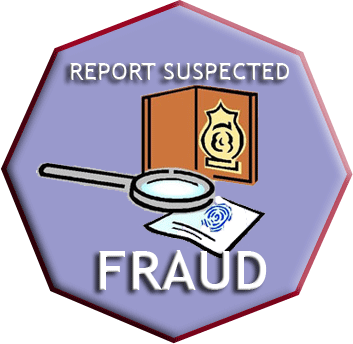 September 16, 2009 - The Malang customs and excise office (KPPBC) has busted a syndicate that produced and distributed cigarettes bearing improper excise stickers, an official said Thursday, September 10th. The syndicate allegedly involved a recently-elected member of the Malang Legislative Council.
September 16, 2009 - The Malang customs and excise office (KPPBC) has busted a syndicate that produced and distributed cigarettes bearing improper excise stickers, an official said Thursday, September 10th. The syndicate allegedly involved a recently-elected member of the Malang Legislative Council.
Head of the KPPBC's intelligence and execution section, Rudi Hery Kurniawan, said that during a raid held earlier this week the team had arrested four suspects and seized millions of cigarettes. "The cigarettes were about to be shipped to Sulawesi when we seized them. They were heading to Surabaya's Tanjung Perak Port in two trucks," Rudi said.
The four suspects, Rudi said, were identified only as JM and, who were driving the trucks, S, who allegedly managed the factory and N, who owned the misused excise number. N, from the Indonesian Democratic Party of Struggle (PDI-P), was recently sworn in as a councilor at Malang municipal legislature. He owns the Dollar cigarette factory, which produces the Actor Super and DL Super cigarettes that were seized by the KPPBC.
When asked for comment, N said that the cigarettes seized by the KPPBC were indeed produced in his factory. But, he said, the factory was currently being rented and operated by a third party.
Rudi said that during the raid his team found thousands of packs of Actor Super and DL Super cigarettes, containing 16 sticks each, bearing improper excise stickers.
The stickers, he said, were not for factory-made filter cigarettes but for traditional Indonesian hand-made kretek cigarettes, which contain coarsely cut tobacco mixed with cloves.
The different products have different rates of excise. The excise for a pack of handmade kretek cigarettes is Rp 40 (US$.004), substantially less than Rp 135 that must be paid on a pack of factory made filter cigarettes.
Despite his claims to the contrary, the police have linked the stickers, which came from Kudus, Central Java, as well as Pasuruan, Kalianget and Gresik, East Java, to N.
The operation, Rudi said, could have caused the state losses of up to Rp 444 million.
"Anyone who misappropriates excise stickers faces a sentence of between a year and five years in prison or a fine of twice as much as the value of the due excises at the minimum and 10 times of them at the maximum," Rudi said.
Reference: New council member named suspect in cigarette fraud case, Wahyoe Boediwardhana , The Jakarata Post - MALANG, 9/11/2009.
Indonesia related news briefs:
Indonesia - an NGO commission assists cigarettes must be banned in films..
Indonesia - a paradise for tobacco companies..
Indonesia - after buying cigarettes very little left for food..;
Indonesia - will they ratify the first world public health treaty..;
Indonesia - last paradise to smoke in public places in Southeast Asia..;
Indonesia - Industry minister to close tobacco to new foreign investment..;
Indonesia Finance Ministry to cap tax deductions for tobacco companies..;
Indonesia - Smoking hits poor families the hardest, making the poor even poorer..;
Indonesia - Cigarette makers defy crisis, grows stronger..;
Indonesia - government may raise cigarette excise tax next year..;
WHO - Indonesia is crying out for your help..;
Indonesia - dispute with U.S. over banning the use of clove in cigarettes..;
Indonesia 'cash cow' for Philip Morris International..;
Tobacco industry has long targeted young people as "replacement smokers";
Indonesia - district court dismisses request to ratify FCTC..;
Asean Countries - Tobacco Industry Blocking Global Treaty On Tobacco..; Indonesia - farmers hold rally protest tobacco controls..;
Indonesia - tobacco farmers reject Islamic council's edict..; Indonesia - Ulema Council - debate results is split on smoking..;
Indonesia - Withdraw Sponsorhip of Another Rock Concert..;
Indonesia to increase tax on tobacco products..;
Semarang, Indonesia - Cigarette Smoking Areas to be Prepared..;
Jakarta, Indonesia - Malls help enforce non-smoking ban..;
Indonesia - federal anti-smoking laws in one year - MAYBE..;
Indonesia - NGO's (non-government organizations) Demand the Government Ratify WHO's FCTC.;
Indonesia to raise cigarette tax by 6 to 7% in 2009..;
Surabaya, Indonesia - anti-smoking bylaw 10/2009 - FOR REAL??
Indonesians smoking more than ever before..;
Indonesia further rise in the excise tax would hurt the cigarette industry..;
Alicia Keys - Jakarta Concert (July 31st) tobacco companies forced to withdraw sponsorship.. and
Most Indonesians support moves to ban tobacco advertisements...
Read more...
U.S. - flavored cigarettes illegal after Wednesday, September 22, 2009..

 September 16, 2009 - With just under a week left before the sales of flavored cigarettes become illegal, the U.S. Food & Drug Administration (FDA) has issued a letter providing the industry with more specific direction, its first action in regulating tobacco since given the task in July.
September 16, 2009 - With just under a week left before the sales of flavored cigarettes become illegal, the U.S. Food & Drug Administration (FDA) has issued a letter providing the industry with more specific direction, its first action in regulating tobacco since given the task in July.
As the letter explains, "An important way to reduce the death and disease caused by smoking is to prevent children and adolescents from starting to smoke. Congress has stated that flavors make cigarettes more appealing to youth and often result in exposure to additional carcinogens and other toxic constituents. The removal from the market of cigarettes that contain certain characterizing flavors is an important step in FDA's efforts to reduce the burden of illness and death caused by tobacco products."
According to the letter, retailers have until September 22 to completely remove a cigarette or any of its component parts (including the tobacco, filter or paper) that contains any artificial or natural flavor (other than tobacco or menthol) or an herb or spice...that is a characterizing flavor of the tobacco product or smoke. Retailers who fail to do so will be subject to seizure and the "full range of enforcement tools within the agency's authority" to ensure compliance. "In addition, manufacturers, distributors and retailers may be subject to injunction actions, civil money penalties and/or criminal prosecution."
The information was both news and a source of frustration to at least one small retailer, Lancaster, Ohio-based Pipe Emporium Inc. dba Smokers Emporium Downtown. Maria Williams, assistant manager at the store, said she heard about clove cigarettes through customers buying up her stock and did her own research to confirm it. She didn't know about other flavors being hit until a conversation with CSP Daily News. "It's a little bit frustrating actually, because we don't even really get a heads up on this stuff unless somebody says something to us."
Details of the regulation, as clarified this week from a letter from the director of the FDA's new Center for Tobacco Products, Lawrence Deyton, specifically state the following flavors as being "adulterated": strawberry, grape, orange, clove, cinnamon, pineapple, vanilla, coconut, licorice, cocoa, chocolate, cherry or coffee.
As both a consumer and somebody running a store, she said, the law is an annoyance. "I see it as too much emphasis is put on regulation and not enough on personal responsibility," Williams said.
She added that her store's clove cigarette consumers tend to be women, who smoke three of them a day maximum, or just as an occasional treat. And while she does understand why marketing of such products should be watched to ensure it doesn't encourage children to smoke, the regulation is also taking away choice for adults. "Everybody has their own choices in flavors; I didn't suddenly develop old-people taste buds," she said, adding that she occasionally likes her chocolate-mocha Dreams cigarettes. "It's the option of choice, I guess, that is the biggest reason why some people get so frustrated with it."
And with only a couple of clove cigarette packs on her store's shelf, she said she will likely just buy them herself if they don't find a home. "For us personally, I don't see it affecting us majorly, just because we are really a relatively small tobacco store," she said. "It's more of a disappointing sign of the times."
Meanwhile, September 18, representatives from the National Association of Tobacco Outlets (NATO) will participate in a "Listening Session" conference call scheduled by the FDA, the group said. The purpose of the conference call is for the FDA to listen to industry retailers with comments on how to implement the FDA tobacco regulations.
One area that NATO representatives will comment on is the ban on color tobacco advertising in all retail stores and the requirement that only "tombstone" advertising consisting of black letters on a white background be allowed in retail stores, said NATO. Since a lawsuit has been filed against the FDA seeking to declare the advertising restrictions unconstitutional, NATO representatives will direct comments to the FDA regarding the unconstitutionality of the advertising ban, it said.
It will be interesting to watch how the FDA's Tobacco Center conducts business with Dr. Deyton in charge. One tobacco analyst has said that the [tobacco]industry was reassured that the FDA did not select an antitobacco advocate to lead the office.
Reference: Burned on Flavor FDA further defines flavored-cigarette ban; retailer reacts by Linda Abu-Shalback Zid, Convenience Store / Petroleum (CSP) Daily News, 9/16/2009.
Tobacco Center (Center for Tobacco Products) related news briefs:
FDA Moves Forward on Implementation of Tobacco Law..;
Dr. Lawrence Deyton to head FDA's Tobacco Center..;
U.S.- creating the FDA's Center for Tobacco Products..
U.S. FDA posts job for new tobacco czar..;
President Obama signs bill for FDA to regulate tobacco...
Read more...
Actor Patrick Swayze a 60-a-day smoker for years dies of pancreatic cancer..


Swayze’s father, Jesse Wayne Swayze, also died at age 57, in 1982. Following the suicidal overdose of one of his sisters in 1994, Patrick began drinking heavily and he sought treatment for alcoholism.
Research suggests that up to one-third of all pancreatic cancer deaths are linked to tobacco use. Scientists suspect that carcinogens in tobacco smoke that travel to the pancreas through the bloodstream may be responsible for pancreatic cancer in smokers. People who use smokeless tobacco products face an increased risk of this type of cancer as well. Snus does not save lives: quitting the use of tobacco does!; Smokeless Tobacco Can Also Increase Cancer Risk..; Karolinska Institution finds twice risk of pancreatic cancer when using moist snuff (snus)..; Finland - proposal to ban tobacco display, total ban on SNUS...

According to the American Cancer Society (ACS), pancreatic cancer is the 4th deadliest form of cancer in the United States today. Approximately 42,470 Americans (21,050 men and 21,420 women) will be diagnosed with pancreatic cancer in 2009, and 35,420 Americans (18,030 men and 17,210 women) will die of pancreatic cancer in 2009.
Biography for Patrick Swayze..
Reference: Patrick Swayze still smoking despite being diagnosed with pancreatic cancer by BARRY WIGMORE, DailyMail.co.uk, 3/14/2008;
Patrick Swayze Smoking, Mahalo.com, 9/14/2009; Patrick Swayze Succumbs to Pancreatic Cancerby Terry Martin, About.com, 9/15/2009.
Read more...
Korea - stricter regulation of the tobacco industry coming..
 September 15, 2009 - The tobacco business is likely to face stricter regulations in the near future ― regulated in terms of "public health" and banned from using words like "mild" or "light" on cigarette packs.
September 15, 2009 - The tobacco business is likely to face stricter regulations in the near future ― regulated in terms of "public health" and banned from using words like "mild" or "light" on cigarette packs.
According to local media, Rep. Jeon Hae-sook of the main opposition Democratic Party is scheduled to propose a revision bill to the National Health Promotion Act. It focuses on scrapping the Tobacco Business Act, which currently regulates the tobacco business. The revision is aimed at putting it under the full control of the National Health Promotion Act.
Rep. Jeon Hae-sook: "Globally, the concern over people's health is growing. The Tobacco Business Act is against the global trend, in that the tobacco business should be controlled in terms of people's health instead of promoting it as a business to collect taxes. According to the lawmaker, many countries are giving health authorities the power to regulate tobacco business.
The U.S. Senate, for example, recently passed a bill giving full-regulation rights on tobacco to the Food and Drug Administration (FDA). In Korea, however, it is regulated by both the Ministry for Health, Welfare and Family Affairs, and the Ministry of Strategy and Finance.
Tobacco has been an important tax source for the government. A 2,500-won pack of cigarettes, for example, includes a 1,550 won tax and other surcharges, or non-tax monetary charges, such as surcharges for health promotion and waste disposal.
There were talks of raising the tax on tobacco amid faltering government fiscal health, but it faced severe opposition from smokers and criticism that it is trying to squeeze the working class. When the health authorities get full control of the sector, however, cigarette prices are likely to be raised as the health ministry has continuously supported such a move as a means to discourage people from smoking.
The pharmacist-turned-lawmaker also seeks banning words like "mild" or "light" from use in cigarette names. She explained that these mislead smokers to believe such brands do less harm to their health.
The revision will also sanction graphic pictures illustrating the damage caused by smoking on packs and advertisements.
Reference: Stricter Regulation on Cigarettes Sought by Yoon Ja-young
Staff Reporter, The Korea Times, 9/13/2009.
South Korea - some related news briefs:
South Korea - tobacco imports surge 396-fold over 10-years..;
Korea - slight increase in men smoking.. ;
South Korea - anti-tobacco campaign - body painting..;
Korea - smoking ban just about everywhere by end of 2009..;
Tobacco marketing in South Korea has been deliberately aimed at girls and young women..;
Korea - smoking rates fall for men and women...
Read more...
Philippines - total tobacco industry could be down 10% to 15% this year,.

 September 15, 2009 - In a chance interview, Philip Morris Philippines Manufacturing, Inc. president Chris Nelson said the total industry could go down by 10% to 15% this year, pointing out that the increase in excise taxes in January has hampered demand for tobacco products. The company is the local arm of cigarette maker Philip Morris International.
September 15, 2009 - In a chance interview, Philip Morris Philippines Manufacturing, Inc. president Chris Nelson said the total industry could go down by 10% to 15% this year, pointing out that the increase in excise taxes in January has hampered demand for tobacco products. The company is the local arm of cigarette maker Philip Morris International.
Mr. Nelson: “If you look at the total market, it is already off by 30% [in the first half] … The impact is sharper at the start of the year but tends to moderate over time.” Price increases for the Philip Morris and Marlboro brands following the increase in excise taxes and the weak economy resulted in a drop in consumption, he said.
In January, the tax rates for all types of tobacco products were hiked by 6% while the rates for alcohol items were increased by 8%, under Republic Act 9334 passed in 2004 [December 21, 2004]. The law mandates tax increases on all types of alcohol and tobacco products beginning January 2005 and every two years thereafter until 2011, to discourage people from patronizing the so-called “sin products.” Dr. Bernardo Villegas, one of the framers of the 1987 Constitution: "With a four-tiered system (2005, 2007, 2009, 2011) on tobacco products, RA 9334 has provided a stable, predictable and increasing source of revenue for the government."
Taxes for these products will increase by the same rates in 2011 but will no longer be adjusted thereafter, regardless of the price movements in the market.
Mr. Nelson said 82 billion to 84 billion cigarette sticks would be sold this year, compared with the more than 90 billion sticks that the industry managed to sell last year.
Mr. Nelson said Philip Morris, which corners around 30% of the market and is considered a premium brand, is also under pressure from local brands like Lucio C. Tan’s Fortune tobacco.
“What is more important is that the market is understandingly weak because of the global economy and the price increases,” he said.
Philip Morris Philippines has no expansion plans as of the moment but will continue to develop and invest in existing facilities, he added. Last month, Philip Morris Philippines leased more property at the Subic free port to accommodate a new P1-billion tobacco leaf warehouse as part of a strategy to quadruple storage capacity to 24,000 tons.
Philip Morris signed a 50-year lease agreement with the free port authority last week, increasing its total land area to 49,279 square meters from its current 9,600-square-meter warehouse. The new climate-controlled warehouse will hold leaves for processing in the firm’s Philippine, Malaysian, and Indonesian factories.
The Philippine tobacco industry: "the strongest tobacco lobby in Asia" K Alechnowicz, S Chapman, Tobacco Control, Tobacco Control 2004;13(Supplement 2)
Reference: Tobacco firm sees up to 15% decline , Tobacco Facts, 9/15/2009.
Philippines - some related news briefs:
Philippines - 2003 ban on advertising and skirting the ban..;
Philippines - June is annually observed as 'No Smoking' Month..;
Philippines may be losing the war against smoking..;
http://snus-news.blogspot.com/2008/11/philippines-thai-cigarette-import-rules.html;
Philip Morris won't postpone Philippines Eraserheads Concert..;
Philip Morris could be criminally liable for its sponsorship of the event .in the Philippines..;
STOP PMI Sponsoring Concert in Philippines..;
Philippines - Smoker to be deported...
Read more...
Swedish Match finalizes sale of South African operation to PMI..
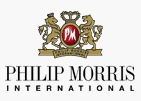

September 15, 2009 - Swedish Match finalizes the sale of its South African operation to Philip Morris International and repurchases own shares.
As announced on July 2, 2009 - Philip Morris International Inc. (PMI) has agreed to buy Swedish Match AB's South African (SMSA)_operations for 1.75 billion South African rand, or roughly $222 million.
The sale has now been completed at a sales price of 1.75 billion ZAR plus a preliminary adjustment for cash and working capital amounting to 230 million ZAR (31,045,400 U.S. Dollars).
Swedish Match’s Annual General Meeting on April 28, 2009 authorized the Board of Directors to repurchase own shares for a maximum amount of 3 billion SEK. The Company has so far utilized this mandate to buy back 7,753,645 of its own shares for a total amount of 999,048,981 SEK.
The Company will use proceeds from the sale of SMSA to continue its share buyback program until the Annual General Meeting 2010.
Refernce: Swedish Match finalizes the sale of its South African operation to Philip Morris International and repurchases own shares, Swedish Match, 9/15/2009.
Read more...
New York City - may ban smoking in parks and beaches..

September 15, 2009 - When New York City’s smoking ban took effect in 2003, cigarette and cigar puffers were driven outdoors.
But soon the outdoors — or at least much of it — may no longer be an option.
NYC Mayor Bloomberg (1st year in office) earned his cigarette-hunter image by banning smoking in city bars and restaurants in 2002, an initially unpopular move that was later copied around the world. (Smoking had been banned in most restaurants in 1995.)
The ban, which took effect in 2003, has gained widespread acceptance and has been credited with helping drive down the percentage of adults in the city who smoke to 15.8 in 2008, from 21.5 percent in 2002.
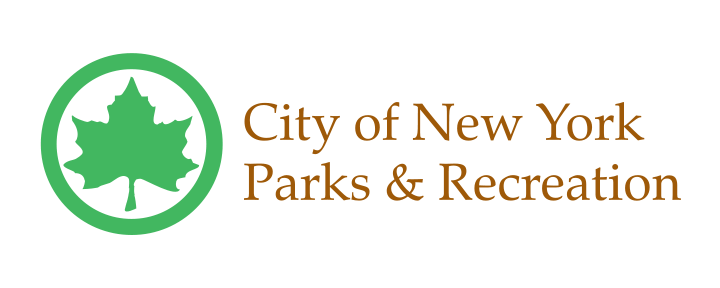 The city’s health commissioner, Dr. Thomas A. Farley, announced on Monday, September 14th that the Bloomberg administration would seek to ban smoking in city parks and beaches. Dr. Farley said the ban — which officials said may require the approval of the City Council, but could possibly be done through administrative rule-making by the city’s Department of Parks and Recreation — was part of a broader strategy to further curb smoking rates, which have fallen in recent years.
The city’s health commissioner, Dr. Thomas A. Farley, announced on Monday, September 14th that the Bloomberg administration would seek to ban smoking in city parks and beaches. Dr. Farley said the ban — which officials said may require the approval of the City Council, but could possibly be done through administrative rule-making by the city’s Department of Parks and Recreation — was part of a broader strategy to further curb smoking rates, which have fallen in recent years.The proposal was contained on Page 10 of a 41-page document, "The proposal was contained on Page 10 of a 41-page document, The proposal was contained on Page 10 of a 41-page document, “Take Care New York 2012,” that put forth health policy goals for the next three years including cutting obesity, H.I.V. transmission and drug and alcohol abuse. The antismoking strategy would also include pressing for higher local, state and federal taxes on tobacco and urging organizations and businesses in the city to reject financing and sponsorship from the tobacco industry.
Mayor Bloomberg unveiled the plan in the morning but later backed away in the face of criticism. He said Monday night, "It may not be logistically possible to enforce a ban across thousands of acres, but there may be areas within parks where restricting smoking can protect health."
The New York City proposal would affect more than 1,700 parks, playgrounds and recreational facilities, as well as the city’s seven beaches, which span 14 miles of shoreline. The proposal drew praise from public health advocates and criticism from one of the nation’s biggest tobacco manufacturers.
Such bans are still rare, though growing in number. A number of municipalities — particularly in California — have banned smoking at outdoor parks, playgrounds and beaches. (California - “The No Smoking at State Parks and Beaches Act,”; More communities adopting their own anti-smoking ordinances to include the outdoors..; Maine - new law bans smoking in outside dining areas..; L.A. bans smoking in parks..; New Jersey town bans smoking on beach, boardwalk, sidewalk..)
David Sutton, a spokesman for the cigarette maker Philip Morris USA, which is part of the Altria Group, said the company supported a ban on smoking in public buildings, public transportation and many areas of the workplace, as well as areas like elevators where smoking would be a fire hazard. “We maintain, however, that complete bans go too far,” Mr. Sutton said in a statement. “We believe that smoking should be permitted outdoors except in very particular circumstances, such as outdoor areas primarily designed for children.”
Dr. David A. Kessler, who was commissioner of the Food and Drug Administration (FDA) from 1990 to 1997: “The issues with secondhand smoke are very real, and the majority of the population today doesn’t want to be breathing in tobacco smoke, whether indoors or outdoors,” said “While undoubtedly some will think this is going too far, 10 years from now, we’ll look back and ask how could it have been otherwise.” (Acute asthma death associated with work-related ETS..) Secondhand smoke is listed as a human carcinogen by the U.S. Environmental Protection Agency (EPA).
References: NYC = Nanny State? Health Dept. considering smoking ban in parks by Adam Lisberg, New York Daily News, 9/14/2009; New York Eyes ‘No Smoking’ Outdoors, Too by SEWELL CHAN, The Ne York Times, 9/14/2009.
Read more...


To Provide Public Awareness
Purpose
About Us
Contact Us
2008 HIGHLIGHTS
TOPIX PAPERS - 2008 & 2009..
Archive
-
▼
2009 (1446)
-
▼
09/13 - 09/20 (28)
- U.S. - flavored cigarettes ban looms, how do you d...
- North Carolina - smoking ban simple details, Janu...
- Smoking mothers and low birth weight increase risk...
- Western Australia - added sweetners make cigaret...
- Indonesia - Constitutional Court by close vote rul...
- UK - Richard Branson makes high-profile plea for ...
- Smoking in cars results in higher nicotine exposure..
- Scotland - tobacco firms claim proposed display ba...
- England - retailers still sell cigarettes to under...
- Children - exposed to cigarette smoke in cars hav...
- Indonesia - parent smoking can negatively affect t...
- Pennsylvania - Republican legislators still refuse...
- Saudi Arabia - rid country of public smoking zones..
- Indonesia - new council member suspect in cigarett...
- U.S. - flavored cigarettes illegal after Wednesda...
- Actor Patrick Swayze a 60-a-day smoker for years d...
- Korea - stricter regulation of the tobacco indust...
- Philippines - total tobacco industry could be down...
- Swedish Match finalizes sale of South African oper...
- New York City - may ban smoking in parks and beach...
- Adolescent smoking - to stop smoking must focus o...
- Malaysia - smoking civil servants in Penang to rec...
- Malaysia - illicit cigarettes, BAT wants governmen...
- Ireland - tobacco vendors must register by October...
- Altria - Copenhagen long-cut wintergreen, more sit...
- Dan Butler, president of U.S. Smokeless Tobacco C...
- England - ban on public smoking results in a fall...
- Maine - new law bans smoking in outside dining are...
-
▼
09/13 - 09/20 (28)